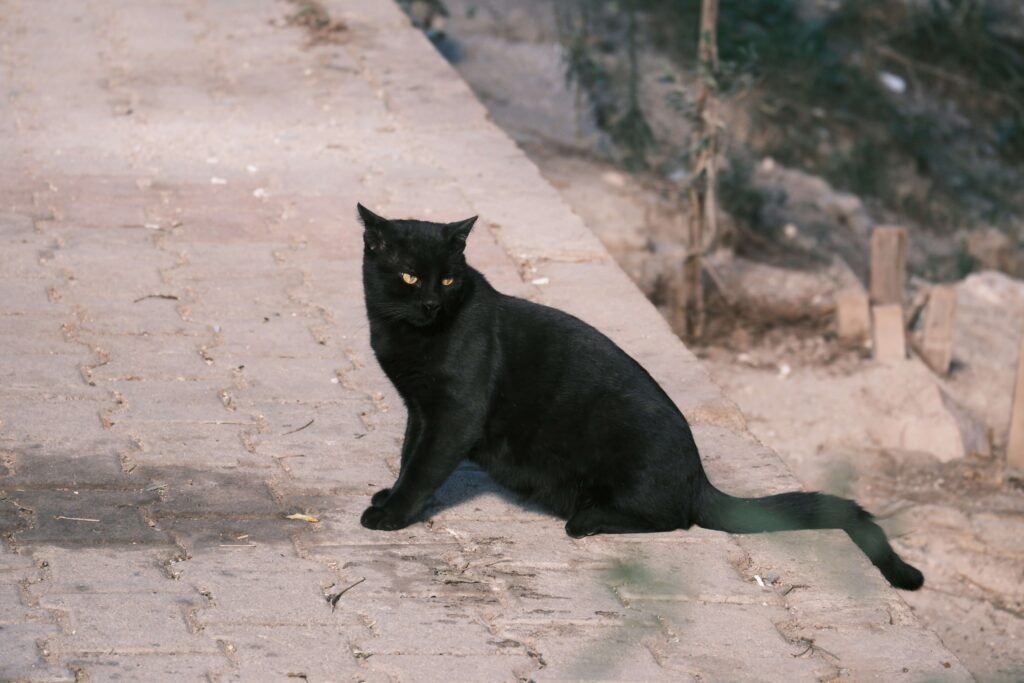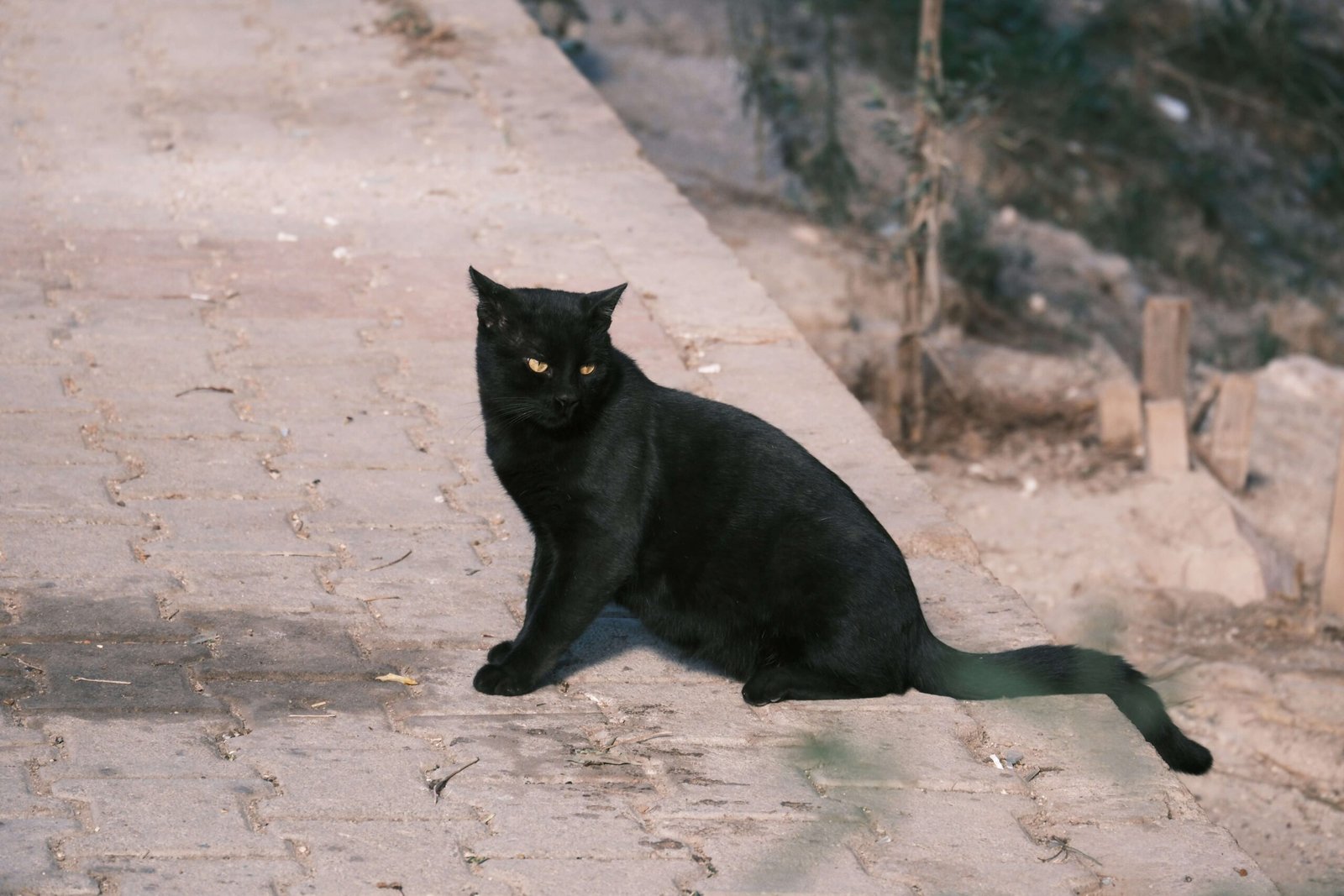Why Does My Cat Sit on Me? Decoding Feline Affection
Cats are mysterious creatures, and their behaviors often leave us scratching our heads in wonder. One of the most common yet endearing actions is when your feline friend decides to plop down right on top of you. Whether it’s during a quiet evening on the couch or while you’re trying to get some work done, this behavior is as puzzling as it is heartwarming. But why does your cat choose you as their personal throne? The reasons behind this quirky habit are rooted in instinct, affection, and even practicality. In this blog post, we’ll explore the fascinating world of feline psychology and uncover what your cat might be trying to tell you when they settle in for a cozy sit.
The Emotional Bond: Why Cats Seek Closeness
Cats may seem independent, but they form deep emotional connections with their humans. Sitting on you is one way they express this bond. Here are some key reasons why your cat might choose you as their favorite spot:
Comfort and Security: Your presence provides a sense of safety for your cat. Being close to you reassures them that they are protected.
Warmth: Cats love warmth, and your body temperature makes you an ideal heating pad. This is especially true during colder months or if your cat feels chilly.
Marking Territory: Cats have scent glands on their bodies, and sitting on you helps them mark you as part of their territory. It’s their way of saying, “You belong to me.”
Affection and Trust: When your cat sits on you, it’s a sign that they trust you completely. They feel safe enough to let their guard down in your presence.
Curiosity About Your Activities: Cats are naturally curious. Sitting on you allows them to observe your movements and stay involved in whatever you’re doing.
In essence, your cat’s decision to sit on you is a multifaceted expression of love, trust, and curiosity. It’s their unique way of saying, “I want to be near you.”
Instinctual Behavior: Tracing Back to Their Wild Roots
While domesticated cats live comfortable lives, many of their behaviors stem from their wild ancestors. Understanding these instincts can shed light on why your cat enjoys sitting on you. Below are some insights into their primal motivations:
Pack Mentality: Although cats are often seen as solitary animals, their wild relatives lived in groups. Sitting close to you mimics the behavior of staying near pack members for survival.
Heightened Awareness: In the wild, cats seek elevated positions to survey their surroundings. By sitting on you, they gain a vantage point while feeling secure.
Maternal Instincts: Kittens often curl up next to their mother for warmth and protection. As adults, cats replicate this behavior with their human companions.
Resource Guarding: In the wild, cats guard valuable resources like food and shelter. Sitting on you could be their way of ensuring they have access to their most important resource—you.
Bonding Through Grooming: Cats groom each other as a social activity. Sitting on you might be a precursor to licking or kneading, both of which strengthen bonds.
These instinctual behaviors highlight how deeply rooted your cat’s actions are in their evolutionary past. Even though they’re far removed from the wilderness, their natural tendencies still play a significant role in their daily lives.
Check this guide 👉Why Does My Cat Put His Butt in My Face? Best 7 Tips!
Check this guide 👉Why Do Cats Chase Their Tails? Best 7 Behavior Tips!
Check this guide 👉Why Does My Cat Lick Plastic? Best 7 Behavior Tips!

Reasons Cats Sit on You | What It Means for Your Relationship |
|---|---|
Seeking warmth | Your cat trusts you to provide comfort |
Marking territory | Your cat sees you as part of their family |
Expressing affection | Your bond is strong and meaningful |
Observing your activities | Your cat is curious about your daily routine |
Feeling secure | Your presence reassures them of safety |
Health and Comfort: Could There Be a Practical Reason?
Sometimes, a cat sitting on you isn’t just about emotions or instincts—it could also relate to their health or physical needs. Here are some practical considerations to keep in mind:
Joint Pain or Arthritis: Older cats may seek soft surfaces to alleviate discomfort. Your lap could be the perfect cushion.
Digestive Issues: Some cats find relief from stomach discomfort by applying gentle pressure, which sitting on you can provide.
Skin Irritation: If your cat has itchy skin, sitting on you might help them scratch hard-to-reach areas against your clothing.
Weight Management: Overweight cats may struggle to find comfortable resting spots. Your body offers a supportive surface.
Feeling Vulnerable: Illness or injury can make cats feel exposed. Sitting on you gives them a sense of security during vulnerable times.
If your cat suddenly starts sitting on you more frequently, it’s worth considering whether there’s an underlying health issue. Consulting your veterinarian can help rule out any medical concerns.
How to Encourage (or Discourage) This Behavior
While many cat owners adore having their furry friend snuggle up, others may find it inconvenient. Whether you want to encourage or discourage this behavior, here are some tips to guide you:
Encouraging the Behavior: Provide soft blankets or cushions where your cat can sit comfortably near you.
Discouraging the Behavior: Gently redirect your cat to a nearby chair or bed when they try to sit on you. Consistency is key.
Reward Good Behavior: Use treats or praise to reinforce desired behaviors, such as sitting beside you instead of on you.
Create Alternative Spaces: Invest in cozy cat beds or perches to give your cat appealing alternatives to your lap.
Be Patient: Changing habits takes time. Avoid scolding your cat, as this can damage your relationship.
With patience and understanding, you can shape your cat’s behavior while maintaining a loving connection.
The Role of Scent in Feline Behavior
Cats rely heavily on their sense of smell to navigate the world and establish relationships. When your cat sits on you, scent plays a crucial role in their decision-making process. Here’s how scent influences this behavior:
Scent Marking: Cats have scent glands on their paws, cheeks, and tails. Sitting on you allows them to deposit their scent and claim you as part of their territory.
Familiarity and Comfort: Your unique scent provides reassurance to your cat. Being close to you helps them feel safe and relaxed in their environment.
Bond Strengthening: By sharing their scent with you, cats reinforce the emotional bond between you two. It’s their way of saying, “We belong together.”
Curiosity About Changes: If you’ve recently been around other animals or new environments, your cat might sit on you to investigate unfamiliar scents.
Reassurance After Stress: After a stressful event, sitting on you can help your cat regain a sense of normalcy through your familiar scent.
In conclusion, scent is a powerful tool for cats to communicate and connect. Their choice to sit on you is often tied to their need to feel secure and bonded through shared smells.
How Your Cat Chooses Their Favorite Spot
Not all laps are created equal in the eyes of your cat. They have specific preferences when deciding where to settle down. Here’s what influences their choice:
Warmth Level: Cats gravitate toward warm spots. If you’ve been sitting in the sun or wearing cozy clothing, your lap becomes even more appealing.
Surface Texture: Soft fabrics like fleece or wool are irresistible to cats. Your clothing material can make a big difference in their decision.
Body Position: If you’re reclined or sitting still, your cat is more likely to choose you as their resting spot. Movement can deter them from settling down.
Noise and Activity: Cats prefer quiet, calm environments. If you’re in a peaceful setting, they’ll feel more inclined to join you.
Personal Preference: Some cats develop quirky habits, like favoring one side of your body over the other. These preferences are unique to each cat.
Ultimately, your cat’s favorite spot is determined by a combination of comfort, warmth, and environmental factors. Paying attention to these details can help you understand their choices better.
What Your Cat’s Behavior Says About Their Personality
Every cat has a distinct personality, and their tendency to sit on you can reveal a lot about who they are. Here are some insights into what this behavior might indicate:
Affectionate and Social: Cats that frequently seek out laps are often extroverted and enjoy human interaction. They thrive on attention and companionship.
Shy and Insecure: A timid cat may sit on you as a way to seek comfort and protection. They rely on you to feel safe in uncertain situations.
Confident and Dominant: Some cats assert their dominance by claiming your lap as their territory. This behavior reflects their bold and self-assured nature.
Playful and Curious: If your cat sits on you while watching your movements, they’re likely intrigued by your actions and want to stay involved.
Independent but Affectionate: Even seemingly aloof cats may occasionally sit on you to show they care, proving that independence and affection aren’t mutually exclusive.
In summary, your cat’s personality shines through in how and why they choose to sit on you. Observing these nuances can deepen your understanding of their unique character and strengthen your bond.
Frequently Asked Questions About Cats Sitting on You
Is it normal for my cat to sit on me all the time?
Yes, it’s perfectly normal. Cats often sit on their owners to show affection and seek comfort.
Should I be concerned if my cat suddenly starts sitting on me?
Not necessarily, but sudden changes in behavior can indicate stress or illness. Monitor your cat closely and consult a vet if needed.
How can I make my lap more inviting for my cat?
Use soft fabrics, maintain a warm environment, and spend quality time bonding with your cat.
What should I do if I don’t want my cat sitting on me?
Redirect them gently to another spot and reward them for staying there. Avoid harsh reactions.
Do all cats enjoy sitting on their owners?
No, every cat is different. Some prefer independence, while others crave closeness.
Understanding Your Cat’s Unique Love Language
At the end of the day, your cat sitting on you is a testament to the special bond you share. Whether it’s driven by instinct, affection, or practical needs, this behavior reflects their deep connection to you. By understanding the reasons behind it, you can better appreciate the nuances of your feline companion’s personality. Remember, cats communicate in subtle ways, and their choice to sit on you is one of the most heartfelt expressions of trust and love. So the next time your cat curls up on your lap, take a moment to cherish the silent conversation happening between you two—it’s a language spoken only by the heart.
Do Cats Have Taste Buds? Best 7 Expert Tips! – Discover how cats experience flavors and why their taste is so unique.
Do Dogs Have Taste Buds? Best 7 Expert Tips! – Discover how dogs experience taste, their preferences, and what it means for their diet and health.
Can Cats Taste Sweet? Best 7 Expert Tips! – Discover why cats can’t taste sweetness, how it affects their diet, and tips to keep them healthy and happy.
Can Dogs Taste Sweet? Best 7 Expert Tips! – Discover how dogs perceive sweetness, which foods are safe, and tips to manage their sweet cravings responsibly.





